About New Aberdeen College
Statement of Faith | Classical Pedagogy | Governance | FAQ | Employment Application
Statement of Faith
New Aberdeen College is confessionally Reformed in its theology. We believe and confess the creeds of the Church (The Apostles’ Creed, The Nicene Creed, and the Definition of Chalcedon) as our foundational statements of faith, but are more specifically defined by the whole “family” of Reformed confessions and catechisms that include the Heidelberg Catechism, the Belgic Confession, the Canons of Dordt, Westminster Confession of Faith, and the Thirty-Nine Articles of Religion.
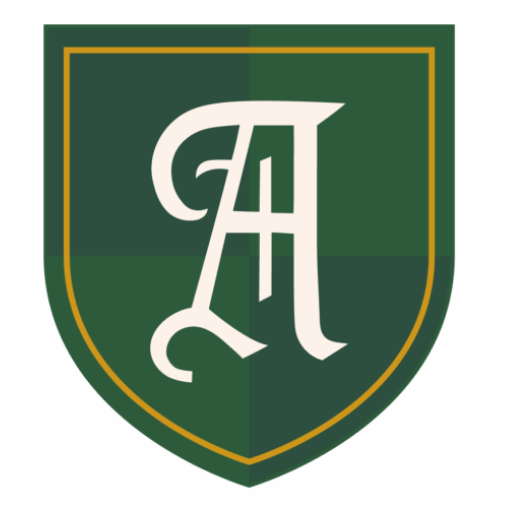
We proclaim and submit to the unique and universal Lordship of Jesus Christ, the Son of God, our only Savior from sin, judgment and hell, until He comes. In our studies and our service, our prayer and our work, He sanctifies us by his Holy Spirit to be his holy people, glorifying Him in the love of God and neighbor.
The Value of a Classical Christian Liberal Arts Degree
Our classical Christian studies degrees contribute to the moral and academic development of the student in a manner unique to modern colleges. This is the education of great men such as Marcus Aurelius, John Calvin, Isaac Newton, Franz Joseph Haydn, and Thomas Jefferson. These men, all champions of Western culture, exhibit the type of influence that persons trained to think liberally – literally, “freely,” able to think independently – can have on culture. In this tradition, New Aberdeen College cultivates virtue and wisdom to present our students mature in Christ (Col. 1:28).
This education’s contribution to one’s personal development comes first. When properly understood, a classical, liberal arts education develops the cardinal virtues: prudence, justice, fortitude, and temperance. When Christian scholarship elevates the liberal arts, that list expands to other virtues, namely faith, hope, and charity. This ethical component is unique among educational institutions in contemporary settings, but it is the highest expression of the classical mode of education. This ethical dimension undergirds the classical liberal arts education, producing virtuous students.
In addition to virtue, a liberal arts degree inculcates wisdom and contributes to the students’ professional development. We embolden young scholars with a remarkable breadth of knowledge, rhetorical, and analytical skills. This education equips them for a life of independent, adaptable productivity.
When studied properly, these fields collectively prepare our students to think critically, analytically, and contextually; the liberal arts grant wisdom. This course of study is a rare gift among contemporary educational options.
An education in the liberal arts also cultivates resilient, transferable skills that employers desire. With the combined elements of transcendent virtues and academic knowledge, the student will outshine his competitors in the job market. Savvy businesses are advertising to hire graduates of liberal arts colleges who can be versatile, communicative, and quickly master the particular skills of the job.
While we are confident that our academic program will train students for nearly any vocation, we recognize the need to give them a path into the job market. New Aberdeen College’s vision includes three pillars, including “cultivating industriousness,” a term that encompasses the ability to accomplish meaningful work. We will equip students with interview skills, resume building, career counseling, and other valuable tools to facilitate their entry into the economy.

What Distinguishes New Aberdeen from other Christian Liberal Arts Colleges?
Many colleges that call themselves “liberal arts” are not, in fact, so.
Contemporary “liberal arts” degrees are typically less discreet in their course selection because the term has become an umbrella for any course that is not an expression of mechanical or fine arts (e.g. brick masonry, sculpture, painting, etc. ). Modern curricula are rarely rooted in classics and Great Books but focus instead on contemporary theories, most famously Critical Theory. Testing is content-oriented rather than dialogical in nature. The secular academy typically indoctrinates leftist ideologies rather than creating independent thinking scholars. Altogether, these trends have given the title “liberal arts” a negative reputation. New Aberdeen College, however, gladly embraces the rich academic tradition of the historic liberal arts, which is a valuable gift from our forefathers and the ancients, to the benefit of our students, our society, and future generations.
Board and Advisory Council
Board of Directors | Presidential Advisory Council
Board of Directors

Mr. Matthew Browning
Board Member
Matthews, North Carolina
Matthew Browning has championed New Aberdeen College since its inception. He currently is the Global Commodities Manager at Forte Opening Solutions. He is a deacon at Redeemer Presbyterian Church (OPC) in Charlotte. He and his wife, Cassie, live in Matthews with their two children. Their children attend Greyfriar’s Academy.
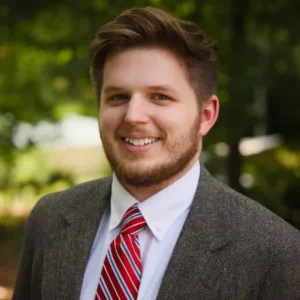
Mr. Carter Ehnis, M.A.
Board Secretary
East Lansing, Michigan
Mr. Ehnis is a passionate educator and linguist. He has played a vital role in the pedagogical foundations of New Aberdeen. A Michigan native, he currently holds a one-year teaching position at New Saint Andrews College teaching Greek and Latin. He is a Latin & Ancient Greek Fellow at the Ancient Language Institute. He hopes to continue his studies with a Ph.D. in Linguistics. He is a member of Palouse Fellowship.
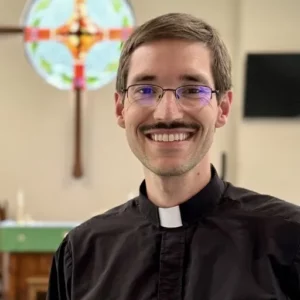
The Rev’d Dr. Peter Johnston
President of the Board
Layfayette, Louisiana
The Rev’d Dr. Peter Johnston is the founding Rector of Trinity Anglican Church in Lafayette, Louisiana. He also serves as Ministry President of Anglican Compass, a digital media ministry. A graduate of Yale College and Yale Divinity School, he holds a Ph.D. from the University of Louisiana with a dissertation on John Milton’s epic poem, Paradise Lost. He lives in Broussard, Louisiana, with his wife Carla and their eight children.
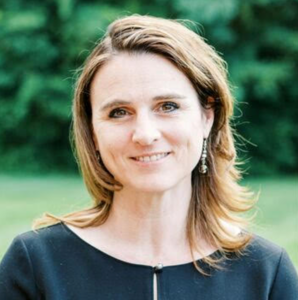
Mrs. Bronwyn Lund
Board Member
Charlotte, North Carolina
Mrs. Lund and her husband, Jason, live in Charlotte near their three adult children. She previously served on the school board for Covenant Christian Academy in Westminster, CA and currently serves on the board for Greyfriars Classical Academy. Mrs. Lund has a professional background in accounting. Her children were classically educated, and she is a graduate from the CiRCE Institute’s Apprenticeship Program. She and her husband are members of Christ Church (ARP) in Denver, N.C., where he serves as an elder.
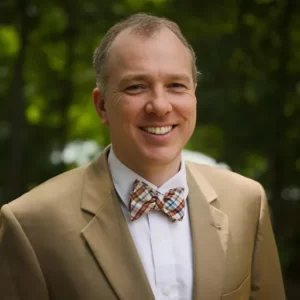
Dr. Ryan F. Smith, D.M.A.
Board Member
Charlotte, North Carolina
Dr. Smith served as a professor and administrator at both secular and Christian liberal arts colleges prior to leading the team that founded New Aberdeen College. He is a trained concert pianist, and he has performed across the U.S. in collaborative and solo engagements. His articles on education, music, and theology have been published in a variety of journals. He has served as a church musician in various capacities for thirty years. He and his wife, Abigail, have four children. He is a member of Resurrection Presbyterian Church in Matthews, North Carolina.
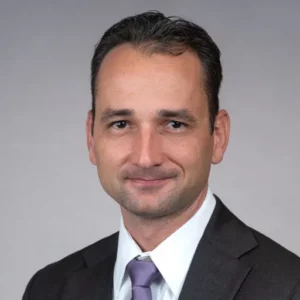
Mr. Chris van Heerdan, J.D.
Board Member
Charlotte, North Carolina
Mr. van Heerden is the Director of Research at the law firm Cadwalader, Wickersham, Taft LLP, where he has previously served as an attorney in the Finance Practice and overseen practice group operational management. Born in South Africa, he started his career as a technology sector research analyst at local bank in Taiwan, and subsequently spent fifteen years as a fixed income research analyst at a U.S. investment bank. He is a frequent author on financial markets and regulation. The van Heerden family—which includes his wife and five children ranging second grade to a college senior—are actively involved in classical Christian education in Charlotte, N.C. He is a member of St. Jude’s Anglican Church in Huntersville, N.C.
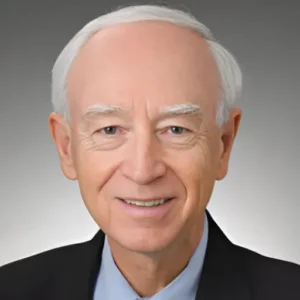
Dr. Marshall “Sonny” White
Board Member
Greensboro, North Carolina
Sonny is a passionate supporter of Christian higher education. He has thirty years of global leadership experience in the chemicals industry. He has also taught at many universities and served on boards at four colleges and universities. He additionally has more than fifteen years experience in leadership of Community and Technical Colleges. Sonny is President Emeritus of Midlands Technical College in Columbia, South Carolina. He is a native of York County, SC and has served as an elder in the Presbyterian Church for 44 years.He and his wife Jo Ellen have two children and two grandchildren and live in Greensboro, North Carolina, where he presently serves as an elder at Christ Covenant A.R.P. Church.
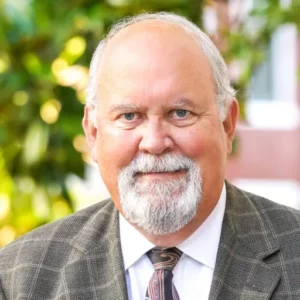
Dr. Bruce Willson
Board Member
Savannah, Georgia
Dr. Willson is an experienced leader possessing a unique combination of nonprofit management, educational leadership, and the pastoral experience to the Board of Trustees. He currently serves as the interim headmaster at Veritas Academy in Savannah. In addition to serving as pastor of John Knox Presbyterian Church (PCA) in Ruston, Louisiana, Dr. Willson was the President & C.E.O. of the United Way of Northwest Louisiana. He earned a D.Min. from Reformed Theological Seminary. Dr. Willson brings expertise in the realms of classical education, the Reformed faith, and extensive experience in fundraising to New Aberdeen. He and his wife have three grown children and three grandchildren. He is a member of Independent Presbyterian Church in Savannah, Georgia.
Advisory Council

Dr. James Anderson
PAC Member
Charlotte, North Carolina
Dr. James Anderson Carl W. McMurray Professor of Theology and Philosophy and the Academic Dean at Reformed Theological Seminary in Charlotte. Dr. Anderson came to Reformed Theological Seminary from Edinburgh, Scotland, and specializes in philosophical theology, religious epistemology, and Christian apologetics. Dr. Anderson has a long-standing concern to bring the Reformed theological tradition into greater dialogue with contemporary analytic philosophy. Before studying philosophy, Dr. Anderson also earned a Ph.D. in Computer Simulation from the University of Edinburgh. He is a member of the Society of Christian Philosophers, the British Society for the Philosophy of Religion, and the Evangelical Philosophical Society. Prior to joining R.T.S. Charlotte, Dr. Anderson served as an assistant pastor at the historic Charlotte Chapel in Edinburgh where he engaged in regular preaching, teaching, and pastoral ministry. He is an ordained minister in the Associate Reformed Presbyterian Church. Dr. Anderson and his wife, Catriona, have three children.

Rev. Rhett Austin
PAC Member
Wheaton, Illinois
Rev. Rhett Austin is the pastor of Faith Community Church (PCA) in West Chicago, IL. He is a native of Alabama but has lived in the Midwest for fifteen years. Before serving in pastoral ministry, Rhett and his wife, Valerie, served at L’Abri Fellowship in Switzerland. He has three young children, Charlie, Vivian Joy, and Mary Hope. The training of the next generation of Christians to think biblically and to live faithfully is Rhett’s passion.

Mr. Christopher Blackwell
PAC Member
Columbia, South Carolina
Mr. Blackwell operates and teaches at the Omnibus Classroom in Cayce, South Carolina. Mr. Blackwell and his wife Jessica have six children, and Mr. Blackwell has taught classes for homeschoolers for nine years. Mr. Blackwell received his Bachelor of Arts from Taylor University where he majored in Biblical Studies and minored in Philosophy. He received his Masters of Divinity from The Southern Baptist Theological Seminary. The Blackwells are members at First Presbyterian Church, Columbia, South Carolina.

The Rev’d Dr. Robert Cathcart
PAC Member
Laurens, South Carolina
Dr. Cathcart is a minister at Friendship Presbyterian Church in Laurens, South Carolina. In addition to pastoring, he is a musician and he studied in the prestigious Institute for Reformed Worship at Erskine Seminary scholar Dr. Hughes Oliphant Old. He currently serves on the PCA Committee on Discipleship Ministries, is an adjunct professor of Christian Education at Greenville Presbyterian Seminary, and is the author of the upcoming book, Shorter Catechism Devotions: Timeless Truths for Today (Christian Focus Publications).

Rev. T. Chris Crain
PAC Member
Greenville, South Carolina
Rev. T. Chris Crain (Ph.D., Saint Louis University, M.Div., Covenant Theological Seminary) serves as Associate Professor of Historical and Pastoral Theology and is the Assistant Director of the Doctor of Ministry Program. He is an ordained minister in the Presbyterian Church in America (PCA). Most recently, he served as an active-duty chaplain in the United States Army for almost twelve years. Prior to that he served as an Assistant Pastor and headmaster of a Christian school in Columbia, SC. He loves to teach, coach, and mentor aspiring and current pastors, especially utilizing the riches of Christian history and theology to inform, encourage, and challenge. Chris and his wife, Nancy, live in Greenville, SC. They enjoy fitness, reading, hiking, and international cuisine.

Mrs. Amy Harrill
PAC Member
Troutman, North Carolina
Mrs. Harrill is the consultant with Ascend1Team, an algoritm-based consultant firm with over two hundred clients nationwide. She is the former Executive Director of the United Way, Director of Development at the Boys and Girls Club of America, and the former manager at St. John in New York City. She is a board member of the Shepherds College in Wisconsin, the nation’s leading post-secondary school created with the learning needs of students with intellectual and developmental disabilities in mind. Mrs. Harrill is the Director of Classical Conversations, Kannapolis, and a regional director with Classical Conversations. She and her husband, Jason, are passionate advocates for school choice and classical education. They have two young daughters.

Rev. Eugene Oldham
PAC Member
Harrisburg, North Carolina
Rev. Oldham is a strong advocate for New Aberdeen College. He is the Associate Pastor at Grace Presbyterian Church, the college’s host church. Eugene leads music and oversees the Christian education ministries. He earned his M.Div. at Reformed Theological Seminary and has been on the staff of Grace Church since 2005. He and his wife, Laura, are homeschool parents. Eugene and his wife, Laura, have eight children.

Dr. Nick Lantinga
PAC Member
South Haven, Michigan
After a distinguished career in academia, Dr. Lantinga is now the President and Director of Sales for Dune Restoration Services. In addition to teaching and administration at all levels of Christian education, Dr. Lantinga is an internationally published author and speaker on Christian higher education. For nine years, Dr. Lantinga served as Executive Director of the International Association for the Promotion of Christian Higher Education (IAPCHE). He has served on the editorial boards of Christian Higher Education and Faith and Scholarship.

Mr. Rick Vogel
PAC Member
Greensboro, North Carolina
Mr. Vogel recently retired as a Vice President from IBM and Kyndryl. He was recently appointed as Helmwise Fellow, and he is actively involved in promoting and supporting classical Christian education in the Triad area of N.C. He currently works as the Director of Business Operations and Development at Bradford Academy of Mebane. He is an elder at Christ Covenant A.R.P. Church in Greensboro.
